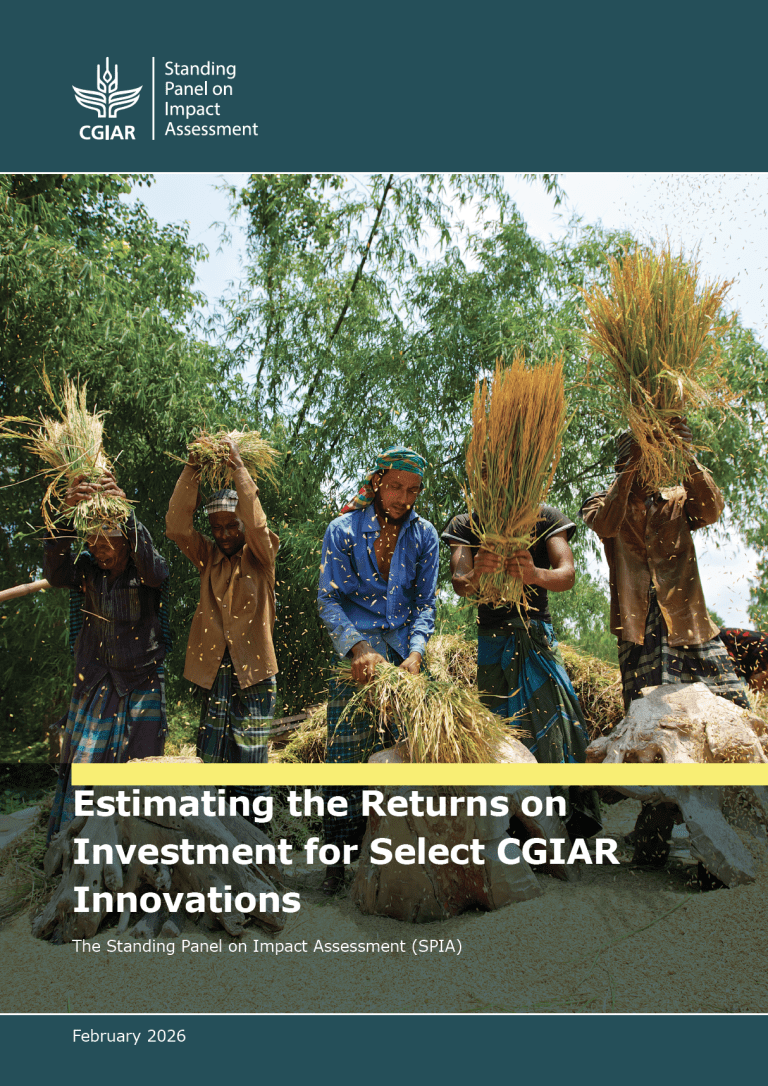The projected increases in global demand for agricultural products over the coming decades – for food, for livestock feed, and use in industry – suggest that annual agricultural production must increase to ward off future increases in food prices. In some cases, increases in agricultural production will be driven by forests or pastures being replaced with cropland. In other cases, a process of changing inputs or other technologies will bring about higher production of agricultural output from the same land area. While these changes will not come about easily – barriers to raising production shape the experience and decision-making of most farmers around the world – when they do, what are the impacts on the environment?
This new SPIA technical note by Alberto Garcia (Ph.D. Student at the Bren School of Environmental Science at UC Santa Barbara) is a review of the literature on the relationship between agricultural intensification and the environment. The issues covered are of strategic importance to CGIAR. Climate change, ecological degradation, and global biodiversity loss are growing crises. Understanding the circumstances under which agricultural intensification exacerbates or alleviates these crises is key to meeting food demand at a minimum cost to the environment. As Garcia finds, the literature is currently inadequate to guide innovation and policy. In particular, few studies employ the necessary rigorous research designs, i.e., approaches that isolate causal relationships rather than correlational associations.
Isolating causal relationships is always a challenge for empirical work, and particularly so when the underlying relationships are complicated. Agricultural intensification can affect the environment through different channels. Changes to the inputs that often accompany intensification such as fertilizers or crop varieties may have direct impacts on the immediate environment through contamination of groundwater or run-off. Indirect impacts may also arise from changes in the profitability of agriculture, or adjustments in prices if output increases. This may change where it is profitable to grow crops or raise livestock, which could lead to either more or less land under production. The specific locations where agricultural land expands or contracts will, in turn, affect other environmental outcomes. While the impacts of intensification on land use are relatively well studied, effects on greenhouse gases, water quality, and biodiversity remain largely devoid of causal evidence that accounts for changes in farmer behavior and the adjustment of related markets.
Funders have a role to play in filling this gap in the evidence: supporting research that pins down the causal impact of agricultural intensification on the environment will – by the logic of supply and demand – lead to more research in this area. SPIA, in a call for proposals issued in collaboration with emLab at UCSB, is taking this approach, albeit at a very modest scale relative to the need. Several new SPIA-funded empirical studies of different agricultural innovations are underway, each rigorously estimating a causal relationship between the roll-out of an agricultural innovation and environmental outcomes such as air quality, rangeland health, and land-use land-cover change. While these empirical questions were difficult to address to begin with, they now face additional implementation challenges amid the COVID-19 pandemic. Each study has a strong measurement strategy centered on remote sensing, which not only offers the possibility of measurement at a large scale but also makes socially distant COVID-resilient data collection possible. So we are optimistic that, despite the many challenges posed by the pandemic, these projects will still deliver the high-quality evidence that is sorely needed.
We are grateful to Alberto for his work on this review paper, which identified key evidence gaps to inform our selection of the final portfolio of studies from this call for proposals. Many gaps remain, making this an exciting area for new research.
Read: The Environmental Impacts of Agricultural Intensification



